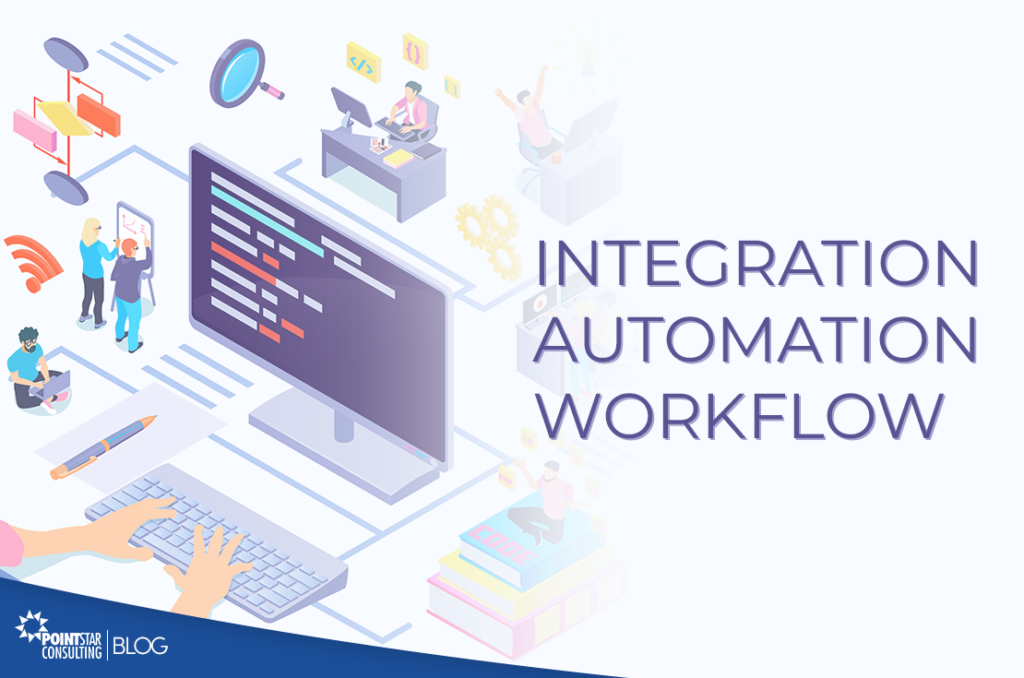For the longest time, businesses have had to grapple with the challenge of managing data from multiple different sources. The rigid architecture of legacy systems meant that undertaking systems integration effort was beyond the reach of most businesses as this was an initiative that was riddled with complexities and was prohibitively expensive.
Faced with the reality of working with these limitations, companies operating before the advent of technology were left with no choice, but to manually key in data from one system to another. This was a painstaking process that involved a high number of resources and resulted in data duplication and other human errors often attributed to manual entry of data.
The remarkable leap in technology helped grease the wheels of business operations in many different ways. One of the key arrivals following the advent of the digital age was cloud technology. With a much more flexible architecture that offers real-time, round-the-clock access to data, cloud technology has completely revolutionised how different systems in an organisation talk to each other.
Where the assimilation of different solutions to a company’s needs were previously solely the preserve of IT teams due to the high technicality of the task, advancement in cloud technology offered a sneak peek of the autonomy that could be afforded to business operations teams if integration gets less technical.
The Application Programming Interface (API) which governs how connections can be established between different systems underwent a period of modernisation. This was swiftly followed by the arrival of solutions delivery models such as software-as-a-service (SaaS), and integration platform-as-a-service (iPaaS), which went further in both reducing the burden on IT teams, and empowering business operations teams to initiate integrations.
This was timely as the rapid growth of technology also accelerated the pace of disruptions experienced by businesses. Technology also fuelled the innovation process and being agile became a prerequisite for businesses to survive and thrive. Integration and automation have grown to become vital cogs in efficient and profitable business operations.
A joint study by IDG and TeamDynamix revealed that 89% of businesses surveyed struggle with data and system integration. In the same study, 66% of respondents also signalled their intentions to invest in data integration platforms. This is understandable. The business world is already one that is extremely disruptive and competitive. The Covid-19 pandemic further muddied the waters, making the present economic environment one that is highly volatile.
In order to respond swiftly to changing market conditions and customer demands, businesses need to have their fingers on the pulse. The suite of integration solutions available today offer organisations unprecedented visibility into their business processes through low-code / no-code integrations. These solutions offer businesses with real-time data on consumer behaviour, allowing organisations to deliver top-notch services to their customers.
Below we look at what the cloud integrations solutions available in the market offer to businesses:
Integration can be initiated by Business Ops and Other Less Technically Skillful Personnel
Where business ops and other less technically skillful components of businesses were previously deprived of the ability to initiate integration due to its highly technical nature, modern-day cloud integration solutions available in the market allow the proactive involvement of respective departments to initiate integration through low-code / no-code solutions.
This means very little technical nous is needed for departments to set in motion the integration of different systems. This on the other hand relieves the burden on the IT department and also allows them to focus on streamlining the stacks and focusing on other important issues such as security.
Best in Class Integration Solutions Enable Automation
As the cloud software integration market matures, the features of these solutions become increasingly sophisticated. The best in class integration solutions available in the present day enable the automation of workflows.
Tedious yet important processes in businesses can easily be automated through integration platforms. These platforms also give the autonomy to the end user to specify the tasks that they wish to automate.
Real-time View of Data
By virtue of its architecture and its presence in the cloud, integration platforms provide real-time view of data for businesses. This allows businesses to respond swiftly to changing consumer demands, spot trends, and unlock critical business opportunities.
Break Down Silos
Operating in silos has been a generational problem in most companies. However, this should not be allowed to continue, as organisations in the digital age need the collaboration between different functions in a company to realise the full potential of the business. By integrating different solutions, departments in companies can operate both independently and interdepently.
Prevent Data Duplication and Human Errors
One of the main weaknesses of the process of manually keying in data is that it results in human errors. For matters related to compliance and other regulatory requirements, innocuous errors result in costly fines. These are distractions businesses can do without. By integrating different solutions in your business, and enabling automation, you help cut down on these errors.
Workato
Workato is an integration-led automation tool that helps businesses connect disparate systems without the need for coding and accelerates automation at scale.


